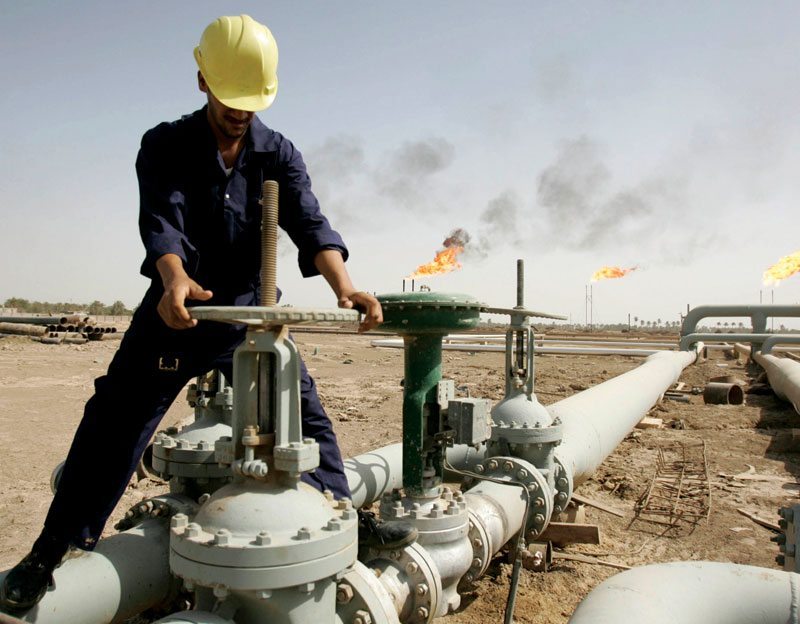

Iraq’s North Oil Company (NOC) has restarted production from Ajil, producing 7,000 barrels a day (b/d) from the field which was badly damaged by Islamic State militants.
Oil Minister Jabbar al-Luaibi said in a statement on 9 October that he hopes to be able to increase production to 17,000 b/d before the end of this year.
NOC has worked to rehabilitate the field’s crude oil production system, linking three wells and repairing a pipeline to carry crude to the Salah al-Din-1 refinery, which is part of the Baiji refinery complex north of Baghdad. The field is also now producing 100 million cubic feet a day of gas, Al-Luaibi said.
Ajil was among a number of fields which were seized by Islamic State militants as they captured swathes of territory across the north of Iraq in 2014. The group targeted production facilities, pipelines, pumping stations and set fire to a number of oil and gas wells during their retreat from northwestern Iraq last year.
Before the takeover, Ajil had been producing had a combined capacity of around 25,000 b/d with the Hamrin field.
The rehabilitation of Ajil follows a similar announcement in late-September that NOC had boosted production at the Qayara heavy oil field to 30,000 b/d. Qayara was another northern oil field captured by the militants. The oil ministry is working on plans to double its output to 60,000 b/d by end of 2018.
Iraq officially produced more than 4.46 million b/d in August, according to the latest data available from the oil ministry. However, the ministry no longer provides a breakdown of where the oil is produced. The vast majority comes from the southern oil fields, and NOC currently produces more than 200,000 b/d, according to sources in Iraq.
NOC could produce significantly more from Bai Hassan and Avana, two reservoirs which form part of the Kirkuk field, with a combined capacity of nearly 300,000 b/d. However, the fields are currently offline, due to a political dispute between the oil ministry and the Kurdistan Regional Government over transporting the crude for export.
You might also like...

Rainmaking in the world economy
19 April 2024

Oman receives Madha industrial city tender prices
19 April 2024

Neom seeks to raise funds in $1.3bn sukuk sale
19 April 2024

Saudi firm advances Neutral Zone real estate plans
19 April 2024
A MEED Subscription...
Subscribe or upgrade your current MEED.com package to support your strategic planning with the MENA region’s best source of business information. Proceed to our online shop below to find out more about the features in each package.





